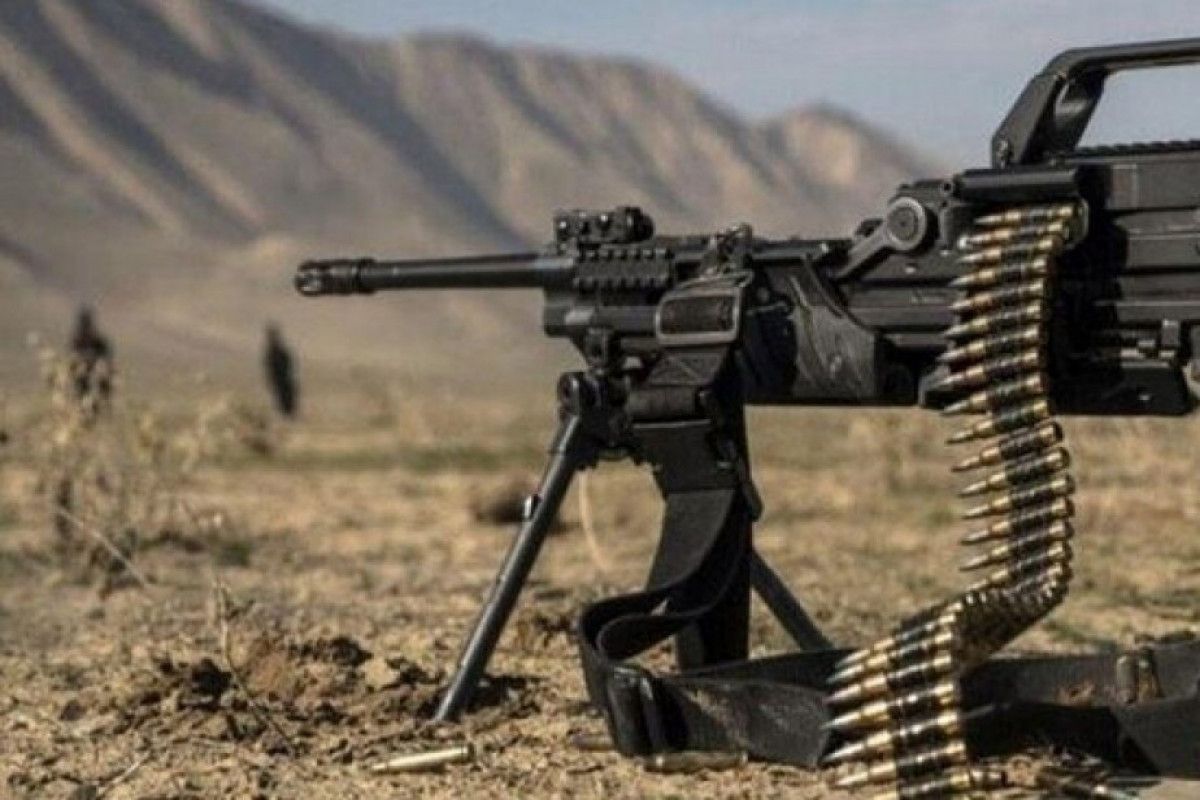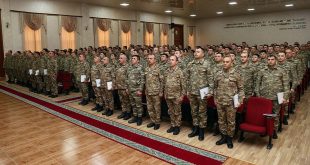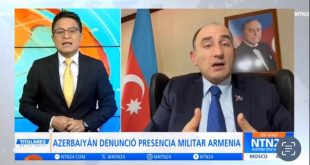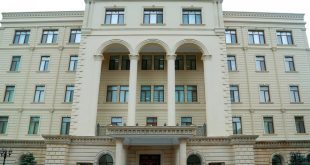
Units of the Armenian armed forces have shelled the positions of the Azerbaijani army with small arms, Azernews reports, citing the Defence Ministry.
It is reported that on February 23, at 05:50, units of the Armenian armed forces shelled from their positions in the direction of Yukhary Shorja settlement in Basarkechar district and the positions of the Azerbaijani army in the direction of Yallija settlement in Kalbajar district.
According to the information provided by the ministry, no retaliatory measures were taken by the Azerbaijani army units in order not to escalate the situation and ensure stability on the conditional border of the two countries.
“We call on the Armenian military leadership to prevent such provocations aimed at destabilising the border and the situation that has developed over the past five months and getting out of control again, and demand to identify and punish those responsible for these actions. “,” the Azerbaijani Defence Ministry said.
Recall that the situation on the Armenia-Azerbaijan border, specifically in the direction of the Zangilan district, escalated after a sniper wounded an Azerbaijani serviceman.
earlier The State Border Service of Azerbaijan conducted an operation codenamed “Revenge,” to suppress an attack committed by the Armenian Armed Forces.
“In result of the operation, the combat post of the Armenian Armed Forces near the Nerkin-And settlement of Gafan district, where our soldiers were targeted [on February 12th], was completely destroyed, and the firing points were silenced,” the State Border Service of Azerbaijan stated on Tuesday, holding the Armenian side responsible for the hostilities.
Moreover, on February 12th, between 8:50 pm and 11:40 pm, Azerbaijani army positions in the Kokhanabi settlement direction, located in the far western Tovuz region of Azerbaijan, were targeted.
During Operation “Revenge,” four Armenian servicemen were eliminated, according to the Defence Ministry of Armenia. The eliminated soldiers were members of the Armenian terrorist organisation Yerkrapah.
On January 30th, the head of Yerkrapah, Sasun Mikaelyan, stated that more than 10,000 strong forces of the terrorist organization have been stationed in combat positions along the Armenia-Azerbaijan border.
The Kremlin’s spokesperson, Dmitry Peskov, has called for restraint to avoid any actions that the sides may consider provocative, stating that Moscow will observe the situation very carefully and continue contacts with Baku and Yerevan.
Tensions on the border came amidst peace talks between Azerbaijan and Armenia, which have been challenging since the end of the conflict in 2020. Baku proposed five basic principles aimed at normalising relations, including mutual respect for each other’s territorial integrity, sovereignty and inviolability of internationally recognised borders; rejection of any territorial claims to each other, now and in the future; rejection of any acts that would run counter to the UN Charter, like the use of force or threat of use of force; delimitation of the interstate border; and opening of communication routes and ties.
The peace process has been complex so far, with Armenia’s approach to the talks lacking a clear and proactive agenda, especially concerning the status of the Armenian residents in the Garabagh region of Azerbaijan, whom Baku legally adopts as its citizens.
The peace talks are further complicated by regular ceasefire violations by Armenia since 2020. In the Garabagh region and on the border areas, multiple armed provocations have led to casualties on both sides. Despite Azerbaijan’s warnings, Armenia refused to disarm its army formations in the Garabagh region and ensure their withdrawal.
On September 19th-20th, 2023, the Azerbaijani Armed Forces conducted one-day local anti-terrorist measures to neutralise the separatists and Armenian military formations in the Garabagh region. On September 20, the separatists agreed to full disarmament and withdrawal.
On September 28, the so-called leadership of the Armenian separatist regime in the Garabagh region announced its self-dissolution. Despite Baku’s calls to stay and reintegrate, as well as pledges to guarantee all fundamental rights, a large portion of the Armenian residents voluntarily left for Armenia.
 Oval Useful news from Azerbaijan and Caucasus
Oval Useful news from Azerbaijan and Caucasus


